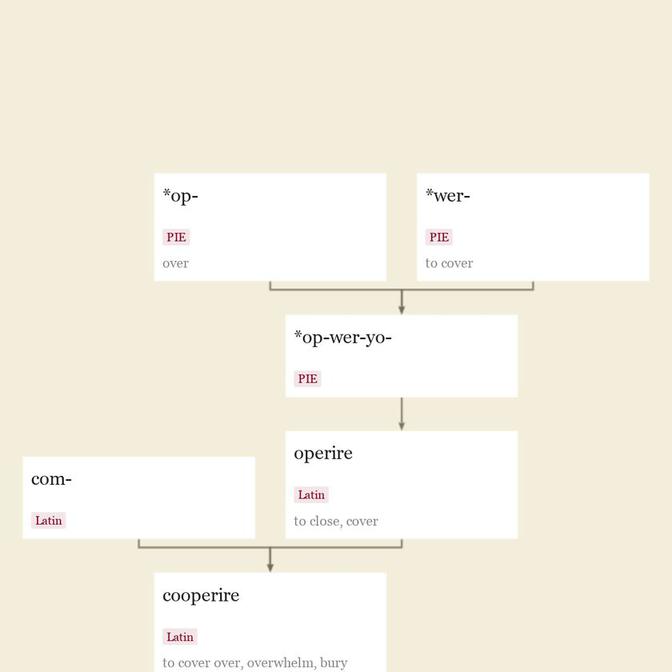discover (v.)
c. 1300, discoveren, "divulge, reveal, disclose, expose, lay open to view, betray (someone's secrets)," senses now obsolete, from stem of Old French descovrir "uncover, unroof, unveil, reveal, betray," from Medieval Latin discooperire, from Latin dis- "opposite of" (see dis-) + cooperire "to cover up, cover over, overwhelm, bury" (see cover (v.)).
At first with a sense of betrayal or malicious exposure (discoverer originally meant "informant"). Also in Middle English used in literal senses, such as "to remove" (one's hat, the roof from a building). The meaning "to obtain the first knowledge or sight of what was before not known," the main modern sense, is by 1550s.
Discover, Invent, agree in signifying to find out; but we discover what already exists, though to us unknown; we invent what did not before exist: as, to discover the applicability of steam to the purposes of locomotion, and to invent the machinery necessary to use steam for these ends. ... Some things are of so mixed a character that either word may be applied to them. [Century Dictionary]
Sense of "make famous or fashionable" is by 1908. Related: Discovered; discovering.
That man is not the discoverer of any art who first says the thing; but he who says it so long, and so loud, and so clearly, that he compels mankind to hear him—the man who is so deeply impressed with the importance of the discovery that he will take no denial, but at the risk of fortune and fame, pushes through all opposition, and is determined that what he thinks he has discovered shall not perish for want of a fair trial. [Sydney Smith, in Edinburgh Review, June 1826]
Trends of discover
updated on January 12, 2023
Trending words
Dictionary entries near discover
discouragement
discouraging
discourse
discourteous
discourtesy
discover
discoverable
discovery
discredit
discreditable
discreet

